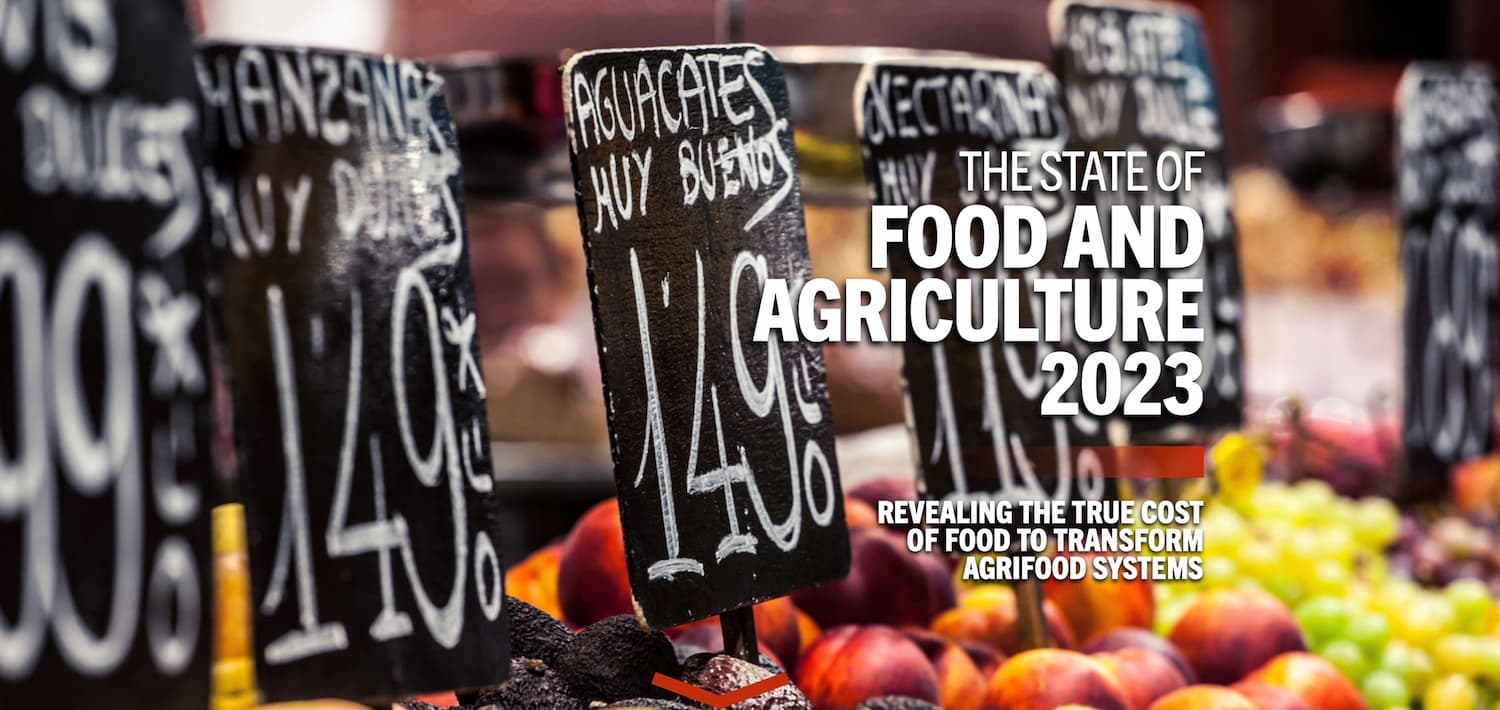How true cost accounting can transform our food systems – and lives – for the better
A new UN report, released today, shows that global food and agriculture systems have hidden environmental, social and health costs worth at least $10 trillion – nearly 10% of global GDP.

By Alexander Müller, Founder and Managing Director of TMG Think Tank for Sustainability and Jenn Yates, Director of the True Cost Accounting Accelerator
Our food system is at a tipping point. Despite forming the bedrock of our society – providing jobs for four in every ten people around the world and generating 12% of global GDP – our food system has huge hidden costs. A new UN report, released today, shows that global food and agriculture systems have hidden environmental, social and health costs worth at least $10 trillion – nearly 10% of global GDP. If we want to tackle climate change and biodiversity loss, and transform our food systems for good, we must start accounting for these hidden costs.
Global food and agriculture systems are vital for thriving economies, but the rapid growth in modern industrialised food and farming systems has caused significant social, economic and environmental harms. Our food system is now the primary driver of global biodiversity loss, responsible for around one third of global greenhouse gas emissions, and closely linked to poor public health outcomes such as diet-related heart disease and increased risk of cancer. Instead of sustaining and nourishing us, our food system is making us, and the planet, sick.
Until now, policymakers have largely overlooked these hidden costs when approaching food system challenges, relying instead on narrow metrics like productivity or calorie intake to make decisions on everything from farm subsidies to anti-hunger programs. By failing to fully incorporate potential costs and benefits in their decision-making, policymakers miss out on the opportunity to design interventions that solve multiple big challenges at once, maximising benefits for people and nature. This must change.
There is a growing consensus that food systems transformation is essential for tackling climate change, protecting biodiversity and providing healthy, affordable food to everyone – but we can’t do this without valuing the full impacts of agriculture and food systems, including those beyond the view of current market mechanisms. Today’s report shows that the largest hidden costs – more than 70% – stem from unhealthy dietary patterns, driven by food insecurity and over production and consumption of ultra-processed foods. One fifth are environment-related, from greenhouse gas and nitrogen emissions, land-use change and water use.
These estimates are based on true cost accounting – a powerful tool that reveals hidden benefits, as well as costs. True cost accounting is an approach that aims to uncover the positive and negative impacts of food systems on our economy, environment and society. It enables decision makers to identify the best levers to transform agrifood systems, and it is already being used successfully to transform food systems around the world.
In India, where policy makers supported the transition of 630,000 farmers to agroecological farming, a true cost accounting analysis found that not only did crop diversity and yields on these farms increase, but net incomes increased by almost 50%, safer farming methods resulted in better health outcomes and fewer days were lost to illness. Villages with a higher takeup of natural farming also had higher female workforce participation.
In Thailand, policy makers used true cost accounting to uncover the hidden costs and benefits of public investments in transitioning to organic rice farming. Among other benefits, they uncovered over $4 billion in potential health savings, due to less burning of fields and reduced use of pesticides, resulting in better air quality and fewer respiratory illnesses.
Researchers have also used true cost accounting to respond to climate-related emergencies. In 2018, a spike in temperatures in the Indian Ocean triggered a widespread invasion of locusts into Ethiopia, Kenya and surrounding countries. Countries tried to tackle the locusts by treating their crops with huge amounts of insecticide, which had the effect of killing bees and reducing honey production by as much as 75%. A true cost accounting analysis found that not only was this honey worth $300 million, but the bees were strengthening food security by pollinating crops, estimated to be worth over 15 times the value of all hive products together.
The success of these initiatives show how government leaders can use true cost accounting to solve the country-specific challenges outlined in today’s UN report.
At the UN’s annual climate conference, COP28, set to take place in Dubai later this month, policy makers have recognised the scale of the food systems transformation challenge. This year marks the conference’s first ever ‘food day’, and the UN’s Food and Agriculture Organization will release a high-profile report setting out how food systems must change to meet the Paris Agreement goal of limiting global warming to 1.5C. We must build on this momentum.
The launch of today’s report shows that the UN has recognised true cost accounting as vital to food systems policy making. We need to go beyond conventional success metrics like crop yields, and understand the value of the whole system such as the health outcomes, or a food system’s impact on water use and biodiversity.
Policymakers from around the world should now follow the example of leaders in India, Thailand and other countries, and use true cost accounting to build a roadmap to solutions that transform our food systems – and lives – for the better.
